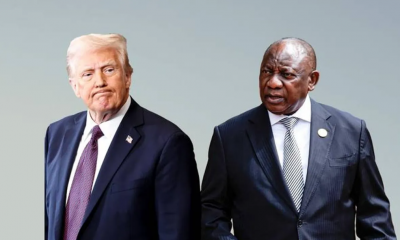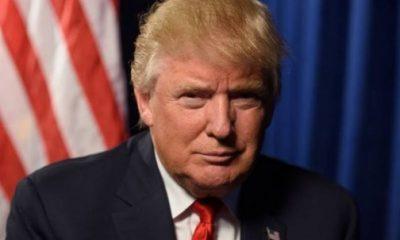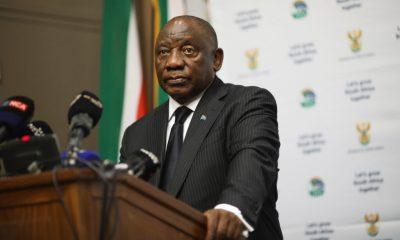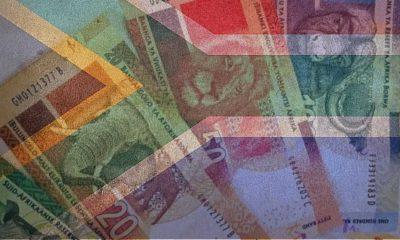Business
Trump’s Global Tariffs Trigger Diplomatic Flurry as Countries Seek Economic Relief
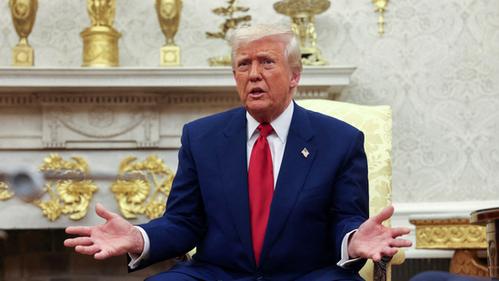
President Donald Trump’s sweeping new global tariffs have shaken world markets and triggered a wave of high-stakes diplomatic activity, with over 50 countries now seeking direct negotiations with the United States to ease the impact of the economic blow.
Trump’s tariff policy—announced last week—sparked market crashes and recession fears, altering the course of global trade as nations scramble to renegotiate access to the world’s largest economy. While some countries are seeking exemptions, others are mobilising economic diplomacy to negotiate broader trade reforms, including the possibility of new free trade agreements.
“The fact that many countries want to negotiate with the US about its higher tariffs confirms the transactional element in President Trump’s tariff strategy,” said Professor Raymond Parsons from North-West University’s Business School.
SA Eyes New Trade Deal as AGOA Future Uncertain
Professor Parsons suggested that South Africa could use this opportunity to pursue a new bilateral trade deal with the U.S., especially after the non-renewal of the African Growth and Opportunity Act (AGOA) looms.
“SA must therefore mobilise the necessary economic diplomacy to negotiate new trade arrangements that protect its valuable economic relations with the US,” Parsons added.
However, he issued a three-part caution:
-
Tariffs take immediate effect, but renegotiating them takes time—especially if many nations are involved. The risk of a global recession remains high.
-
A bilateral approach could foster divide-and-rule tensions, with U.S. demands potentially including non-tariff issues.
-
Countries must avoid unrealistic expectations. The U.S. is committed to weaponising tariff policy in its economic interest, and that mindset is now “the new normal.”
Global Reactions: Taiwan, Vietnam, Bangladesh, and Others Respond
Taiwan, hit with a 32% tariff, has opted not to retaliate. President Lai Ching-te called the tariff “unfair”, but emphasized the island would maintain goodwill and instead announced a $2.7 billion relief package for affected sectors.
Vietnam, which saw its U.S. export market shrink under a 46% tariff, has formally requested a 45-day delay, citing slower-than-expected Q1 growth. The Southeast Asian nation is among the worst hit, given its heavy reliance on U.S. consumers.
Bangladesh, affected by a jump in cotton tariffs from 16% to 37%, responded by granting a license to Elon Musk’s Starlink satellite internet service. The move is seen by analysts as an attempt to curry favor with Washington, given Musk’s close ties to the Trump administration.
Zimbabwe’s President Emmerson Mnangagwa announced a full suspension of tariffs on U.S. imports, following an 18% levy on its exports, signaling a gesture of goodwill in hopes of renegotiating terms.
In the UK, Prime Minister Keir Starmer took a more cautious approach, calling for “cool heads, pragmatism and a clear understanding of our national interest,” after a 10% U.S. tariff was imposed.
SA Ministers Urge Diversification and Growth
South Africa’s Justice Minister Ronald Lamola and Trade Minister Parks Tau emphasized the importance of maintaining strong relations with the U.S., but stressed that South Africa must also diversify its trade partnerships, particularly within Africa.
“The best way forward is to enhance domestic economic growth and expand export markets beyond traditional trade partners,” the ministers said.
The Tariff Era Is Here
As nations scramble to respond, it’s clear that Trump’s tariffs are not a temporary shock but a strategic reset in how the U.S. engages with the global economy. With negotiations underway and tariff diplomacy replacing multilateralism, the world’s trading system may be entering a new era of bilateral deals, realpolitik, and economic brinkmanship.
{Source IOL}
Follow Joburg ETC on Facebook, Twitter , TikTok and Instagram
For more News in Johannesburg, visit joburgetc.com

